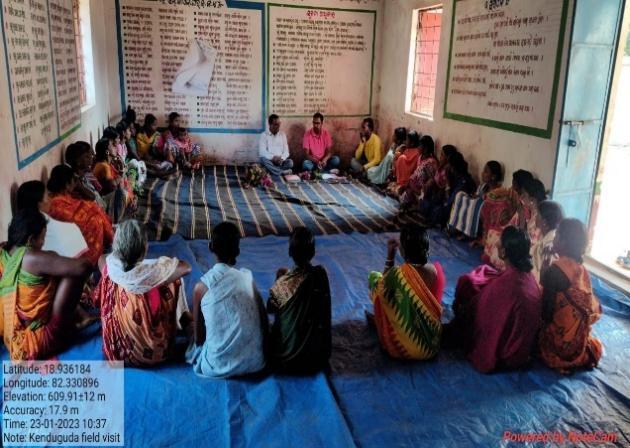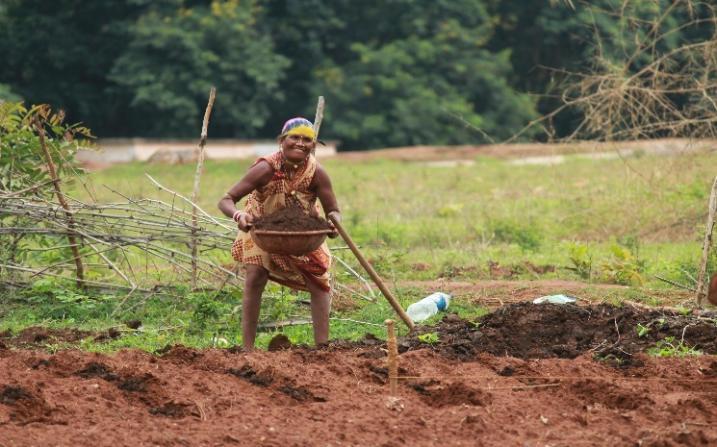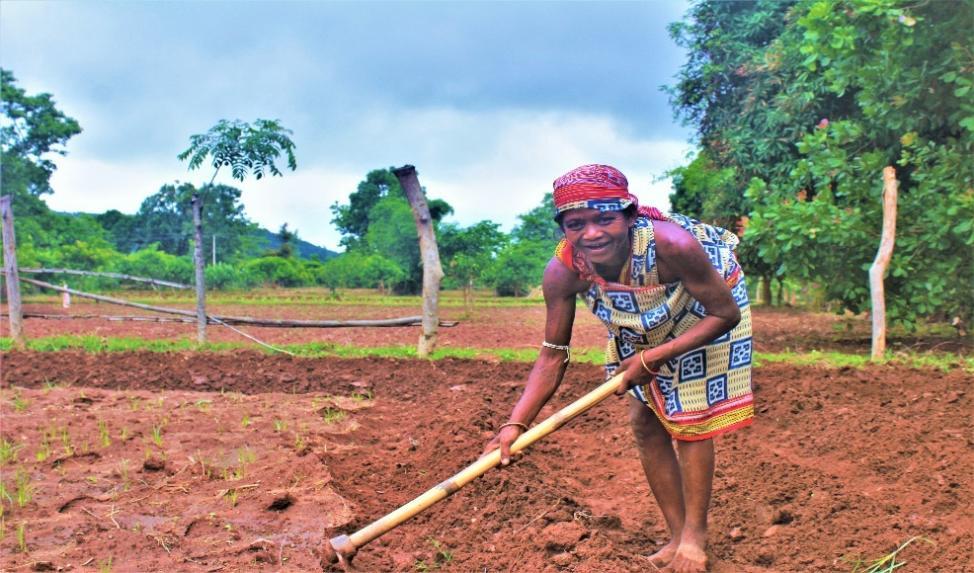Irrigation is a distant dream
Kenduguda village is located 14 km from the block headquarters in Koraput district. A total of 195 households inhabit Kenduguda village, with 125 Scheduled tribe families and 70 Scheduled Caste families. About 90 % of households are dependent on agriculture for their livelihood.
The lack of irrigation facilities is a significant impediment to making agriculture a lucrative venture. This story is about 21 farming households in Kenduguda village of Koraput district, where the facilitation of an irrigation facility changed their lives by supporting vegetable cultivation on 17 acres of land.
Convergence aids Group-based Irrigation
Harsha Trust started working with the marginal farmers of Kenduguda village to improve their income from farm-based livelihood. We arranged a village-level meeting to learn the different types of livelihoods and practices that could help the farmers. After a thorough discussion with them in the meeting, the farmers expressed their pressing need for proper irrigation infrastructure.
The community leaders Raibari Durua and Kanankdei Durua went to the block office where they met the Block Agriculture Officer and submitted an application for irrigation infrastructure. In December 202, the Block Agriculture Officer had a meeting with the people of Kenduguda and saw the agriculture area.
After meeting the farmers, a Solar Cluster borewell under BGREI (Bringing Green Revolution Eastern India) was installed, and a Water User Group was formed. After many efforts, in 2021, three solar borewells were funded and installed by the Agriculture Department.
Radhakrishna Water User Group
A group of 21 marginal farmers came together to constitute a Water User Group (WUG) in the area and officiated the group by obtaining approval from the Tehsil office. They then opened a bank account to deposit the collected group money.

Budget of the scheme
The total budget for three solar bore-well installations was ₹ 15,42,000 rupees, with community contribution being ₹ 42,000 and other funds were received from the Agriculture Department. The borewell facility has given the farmers 21 acres of irrigated land, of which 17 acres are used for cultivating commercial vegetables by 21 farmers.
Training in Vegetable Cultivation
Along with irrigation facilities, the farmers also received intensive training through capacity-building programs on commercial vegetable cultivation. They received training on crop selection, new practices, application of new technology, pest and disease management, crop sorting and grading and value addition.
Assured Irrigation Provides Better Income
Since the borewell installation on 15th May 2022, this new convenient irrigation facility has been helping farmers to cultivate profit-making commercial crops and has increased their income. The three bore wells are irrigating 21 acres of land.
Farmers were actively engaged in all on-farm and off-farm activities, giving them sufficient time for meetings and cultivating their agricultural land. For maintenance of the solar borewell, they collected ₹ 2,000 from each household. After the interventions, the farmers also earned ₹ 20,000 to 30,000 per season.
Promising Results
- Round-the-Year Vegetable Crop Production: The farmers are now cultivating vegetables such as cauliflower on 10 acres and tomatoes on 7 acres, and made a tomato nursery for the Rabi season. Earlier, they could grow a single crop in a year, but now they cultivate vegetables three times a year.
- Increased Income: Initially, the average income of the farmers ₹10,000 to 15,000 from their agricultural land. Post the intervention, average incomes have increased to ₹ 20,000 to 25,000, solely from vegetable cultivation.
- Reduced Market Dependency: Farmers used to depend on the local market for vegetable marketing. However, after the intervention, they got fresh vegetables for their consumption and saved money for their contingency needs.


Challenges
While helping farmers to increase their income through vegetable farming, several challenges were faced:
- Trust building – Building trust among farmers is a time-consuming process.
- Water User Group Building – Obtaining the legal certificate from Tahsildar for the water user group formation required lots of time, effort, and liaising with government line departments.
- User fee collection was initially difficult because all farmers belonged to poor marginal families.
- Heavy Rainfall – 40 to 50% of vegetable farms were damaged by heavy rainfall with several diseases like Collar rot, Fusarium, and White Mold. The application of Handikhata and Agneyastra helped resolve these issues.
- Market linkage – Initially, it was difficult to connect farmers with the market, but as they gained more experience in producing commercial vegetables, they were also able to get the hang of collective marketing.
Conclusion
Farmers can earn more from farming through institution building, training, guidance, and convergence with line departments. By availing various schemes and opportunities the government can go a long way in ensuring sustainable livelihoods for marginal farmers.
As farmers of this village have started earning better and have successfully stepped out of survival mode, they have started small savings and are investing more in their children’s education. The Agriculture Production Cluster (APC) enables market linkage, giving them easy access to buyers and better earnings.
Raibari Durua emphatically exclaims:
Aa de Sukhla Bhuin daa a jeeuna aila! (The dryland has got infused with life!)
